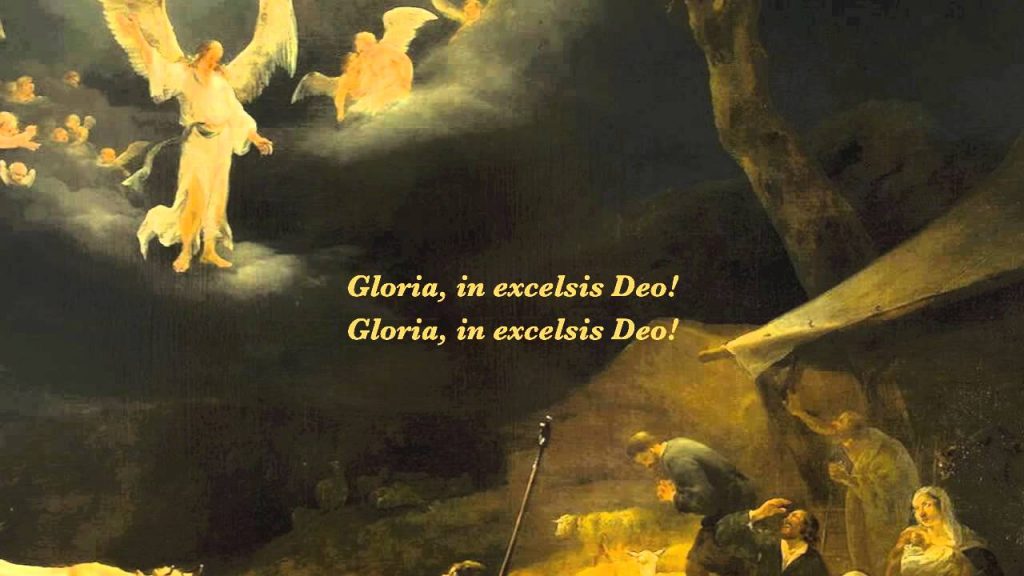
Christmas carols are a bit like chili.
There’s more than one great recipe out there. And surprising combinations can sometimes bring the best results.
Angels We Have Heard on High is an excellent example.
The tune is French. The most familiar verses, penned by James Chadwick in 1862, are English. The refrain (Gloria in excelsis Deo, or “Glory to God in the highest”) is Latin, although the shepherds outside Bethlehem presumably heard the angels singing in Aramaic or Hebrew.
Over the years there has been a surprising amount of variation in the lyrics. But one ingredient never changes: that awesome refrain.
For two centuries now, carolers have accepted the challenge of taking their deepest breath and singing Glo-o-o-o-o-O-o-o-o-o-o-O-o-o-o-o-O-ria. It’s called a melismatic melodic sequence – singing a single syllable of text while traversing multiple notes. Now you can wish your friends a Melismatic Christmas and know exactly what you’re talking about.
Here are the words that this evening’s carolers at your front door are most likely to be singing:
Angels we have heard on high, sweetly singing o’er the plains
And the mountains in reply echoing their joyous strains.
(refrain) Gloria, in excelsis Deo! Gloria, in excelsis Deo!
Shepherds, why this jubilee? Why your joyous strains prolong?
What the gladsome tidings be which inspire your heavenly songs? (refrain)
Come to Bethlehem and see Christ whose birth the angels sing;
Come adore on bended knee Christ, the Lord, the newborn King. (refrain)
See him in a manger laid, Jesus, Lord of heaven and earth;
Mary, Joseph, lend your aid, with us sing our Savior’s birth. (refrain)
Like great chili, this rendition by the country group Home Free has a little bit of everything, including hints of “Joy to the World.”
What can we say about the refrain? It should be sung with joyfuldefiance.
Glory to God in the highest: Can ordinary people really live as if that were true?
American culture hums along as if the reality of God is unnecessary for us to get through the next 24 hours. Do we really need God in order to do our banking, job-searching, lovemaking, last-minute shopping, or outdoor grilling? Tens of thousands of details make up our lives – and if we address them without a single nod to Jesus, the consensus is that we’re not really missing all that much.
Scripture declares that God is “high and lifted up,” searingly holy, and surrounded by glory – a translation of the Hebrew word that also means “weight.”
Christmas carols can become our annual reminder that the God who governs the cosmos is not “weightless.” As Timothy Keller asks in his book Hidden Christmas, do we really think that God is the kind of person we would ask into our life to be our assistant?
Here then is a counter-cultural prayer on this Christmas Eve:
Lord, help me treat you as the weightiest thing in my life – the heaviest Reality I know.
And every time I hear this carol, may I be reminded to let you reclaim the highestground in my heart.
